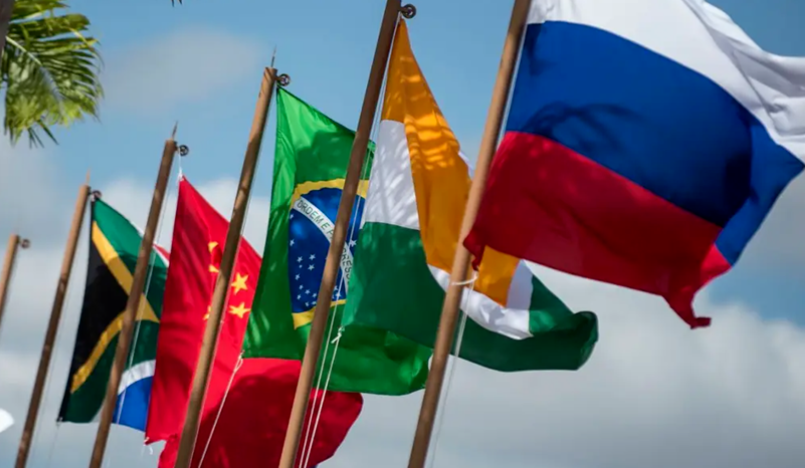
Brazilian President Lula held an online meeting with leaders of the BRICS member countries on the morning of September 8th, local time in Brazil. The online summit was hosted by Brazil, the current rotating chair of the BRICS countries, with the aim of coordinating strategies centered on multilateralism to address the new policies of the United States to increase tariffs on trade partners.
The meeting will discuss strengthening trade agreements, using local currencies for settlements, and other alternative trade mechanisms, while also focusing on the wars in Ukraine and the Gaza Strip, and the necessity of reforming global governance institutions. Lula will also extend invitations to world leaders to attend the 30th United Nations Climate Change Conference (COP30) scheduled to be held in Belém, Pará State, Brazil, in November this year.
The recent actions by the U.S. government imposing a 50% tariff on Brazil are seen as an attempt to reverse the trend of declining U.S. economic and trade competitiveness over the past few decades. Experts suggest that these measures also have a political blackmail aspect aimed at targeting BRICS countries, as the U.S. views this global southern bloc as a potential threat to its global hegemony, particularly as BRICS countries have proposed using currencies other than the dollar for trade settlements.
This special meeting comes just two months after the BRICS summit held in Rio de Janeiro, during which President Trump threatened to impose sanctions on any country that aligned with BRICS policies. The BRICS group includes Brazil, Russia, India, China (founding members), South Africa (joined later), Saudi Arabia, Egypt, the United Arab Emirates, Ethiopia, Indonesia, and Iran.
In his speech, Lula will emphasize the importance of national sovereignty and discuss how to expand trade mechanisms among the member countries of the group. Lula stated in his address to the heads of state, "The trade and financial integration among BRICS countries provide a secure alternative to address protectionism."
He believes that the BRICS bloc has the "legitimacy to reshape the multilateral trading system," based on modernization and flexibility that meets the development needs of each country. In his speech, Lula also mentioned the significant role played by the New Development Bank of the BRICS countries in diversifying economic foundations and the complementarity among the nations.
He pointed out, "BRICS countries account for 40% of global GDP, 26% of global trade, and nearly half of the global population. We are both major energy exporters and consumers. We have the conditions to drive green industrialization, create jobs and income, especially in high-tech sectors. We possess a third of the world's arable land and produce 42% of global agricultural products."
Lula stated that the global governance crisis is "not a temporary issue" and that BRICS countries should demonstrate cooperation that "transcends any form of confrontation." He emphasized, "In recent years, the functioning of the World Trade Organization (WTO) has stalled. Unilateral measures in recent weeks have rendered fundamental principles of free trade such as most favored nation treatment virtually meaningless. Our countries are becoming victims of unreasonable and illegal trade practices."
Lula added, "The U.S.'s tariff threats are becoming normalized, and these threats are also being used to interfere in the domestic affairs of other countries. This year, Brazil holds the rotating chairmanship of the BRICS countries. Against the backdrop of global geopolitical changes, since Lula's third presidential term began, he has been advocating for the multilateral reform of global governance institutions in various international forums, including reforms of the United Nations Security Council and the World Trade Organization."
Lula called for unity, stating, "We need to attend the 14th WTO Ministerial Conference scheduled to be held in Cameroon next year as a united front and propose initiatives for reforming the organization."
